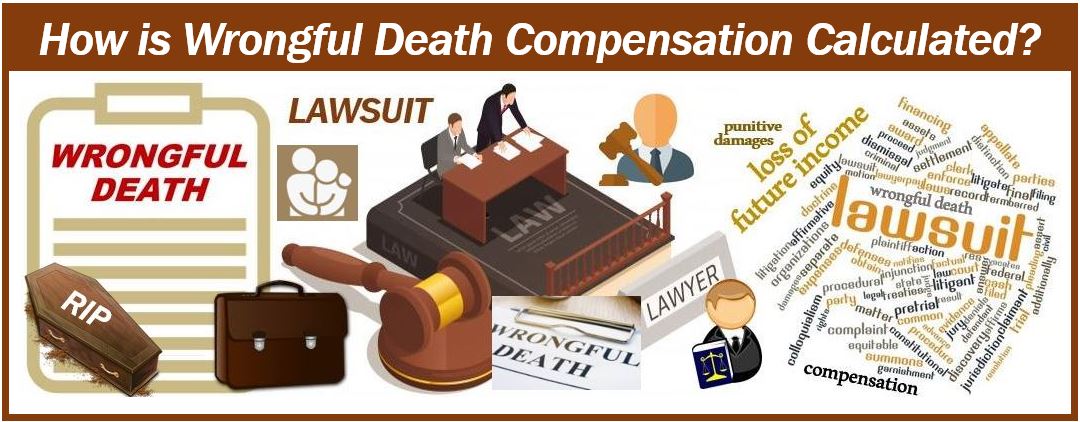In the United States, wrongful death damages are awarded when a defendant’s negligence has been shown to have been a substantial factor in causing the plaintiff’s death. These damages are intended to fully compensate the plaintiff’s survivors for their losses, which include both tangible and intangible elements.
The amount of damages that a plaintiff will be awarded depends on a number of factors that go into calculating wrongful death compensations, including pain and suffering, lost wages, and funeral expenses. Here, we’ll take a look at how these factors play into an award and what steps should be taken in order to file a claim.

1. Whether they were married
The emotional pain and suffering of those related to the deceased are taken into consideration, and the widow or widower of the deceased loved one, as well as his or her parents or siblings, are usually awarded the greatest damages.
The amount that will be compensated will depend on a lot of factors mentioned throughout this article, but it’s in your best interests to consult with a law firm like Schultz Myers that can help you know exactly what documents you need to prepare, and all the legal advice you need to get through the process, as well as helping you file claims and other documents when you’re feeling overwhelmed.
If the deceased spouse was the primary breadwinner in the household, the surviving spouse may be awarded significantly more. This is in order to compensate for the economic loss incurred by the surviving spouse and to help prevent them from falling into economic hardships.
The number of children the deceased had will also be taken into account, especially any children who are still minors. The loss of a spouse means that he or she no longer has to provide the care and support to the minor children, and therefore the surviving spouse and children will be entitled to more compensatory damages.
2. Annual income before death
To compensate for lost earnings, the deceased’s blood relatives and surviving spouse can be awarded compensation based on how much the deceased was contributing financially to their well-being. This is a tricky and complex calculation and requires a certified economist, but it will also be up to the judge and jury to determine the amount of compensation to be awarded in cases such as these.
Generally, it is calculated by the deceased’s education, career, background, and age. Other factors can also be considered, such as medical care, insurance payments, retirement plans, and how much the deceased contributed towards household expenses.
3) Grief and anguish compensation
Condolence payments are given to a surviving spouse or next of kin to compensate for their grief and suffering but are not the same as damages. It is truly difficult to place a monetary value on the anguish felt from losing a loved one – you probably feel like you’d forego all the money in the world just to have them back – but a jury will make an award to the surviving spouse or family member based on how much the deceased meant to their family.
The amount paid to a surviving spouse or close family member is typically paid out of the wrongful death compensation and is determined by the judge based on the size of the family.
4. The deceased’s state of health before death
The judge or jury will consider whether a person was still in the prime of their life before they died, and whether or not they had plans for the future. If they were healthy and active, this will be considered in assessing their life before they died and will play a significant role in determining how much compensation is awarded to the deceased’s family members.
If they were ill but their untimely death was the result of negligence from a healthcare provider, their family will have the opportunity to file a lawsuit against the healthcare provider in a malpractice suit.
5. Other factors taken into consideration
Other factors that the judge and jury will consider in order to compensate the deceased’s family and loved ones include things such as:
- Life insurance policies
- Funeral expenses
- Lost benefits such as health insurance and pension
- Incurred medical bills
Overall, the best bet is to have a good attorney that can represent your family, and understand the legal process. Being well-versed on how to prepare for such a legal matter will pay off, as an attorney will know what to do to prepare your family for a court appearance, as well as work with a renowned judge that can offer the best compensation for your loved one.

